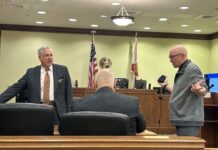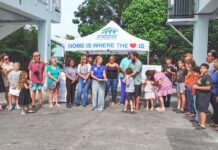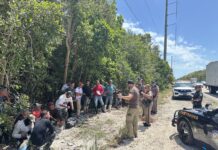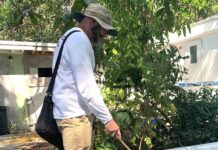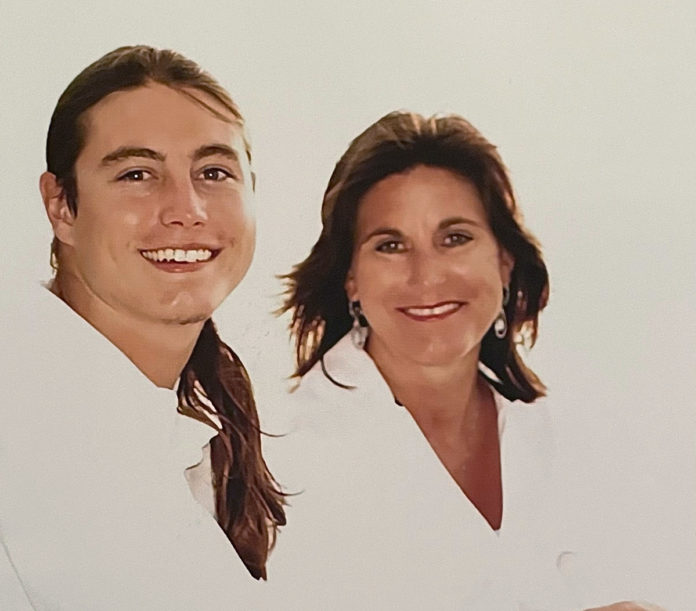
Back in April, when Rhonda Brewer’s 31-year-old son Marshall Carlton “Carly” Simonds visited her at his childhood home in Islamorada, she looked into his eyes and knew he was using. Again.
“I took his face in my hands and said, ‘Don’t go back to South Carolina. I’ll drive you to rehab. Let’s go,’” she recalled. “He said, ‘I don’t want to lose my job.’ He went back to South Carolina, and three weeks later, he was gone.”
Simonds overdosed on fentanyl on April 26, after battling his drug addiction for 12 years.
Brewer is not alone in her grief. Last month, national headlines told the story: “Overdose Deaths Reached Record High as the Pandemic Spread,” said the title of a Nov. 17 New York Times article.
“In the 12-month period that ended in April, more than 100,000 Americans died of overdoses,” the article said. “The figure marks the first time the number of overdose deaths in the United States has exceeded 100,000 a year, more than the toll of car crashes and gun fatalities combined. … The rise in deaths — the vast majority caused by synthetic opioids — was fueled by widespread use of fentanyl, a fast-acting drug that is 100 times as powerful as morphine.”
Brewer said the coroner of Greenwood County, South Carolina, where her son overdosed, told her that Simonds’ lethal dose of fentanyl measured 17 nanograms, the size of the tip of a grain of rice.
Simonds had scored the drug before reporting to work at an electrical company on the morning of April 26. He went with his boss to a supply store and excused himself to go to the bathroom, where he took his fix. He died on the spot.
Though Simonds died in South Carolina, he battled his addiction for the most part in the Florida Keys, Brewer told Keys Weekly in an interview. He became hooked on drugs in his first year at the University of Florida, having been supplied with cocaine by his dealer roommate, said Brewer.
“And he fell down the rabbit hole,” she said.
Prior to that, no one would have predicted that this would be Simonds’ fate. He graduated at the top of his class at Coral Shores High School and was captain of the swim team. He read voraciously.
“If you were to ask anyone on these islands what they remember most about my son, they would all tell you his smile, and how caring he was,” said Brewer.
She helped her son with his battle while he lived in the Keys, sending him to rehab three times.
“He spent three years clean in the Navy,” she said.
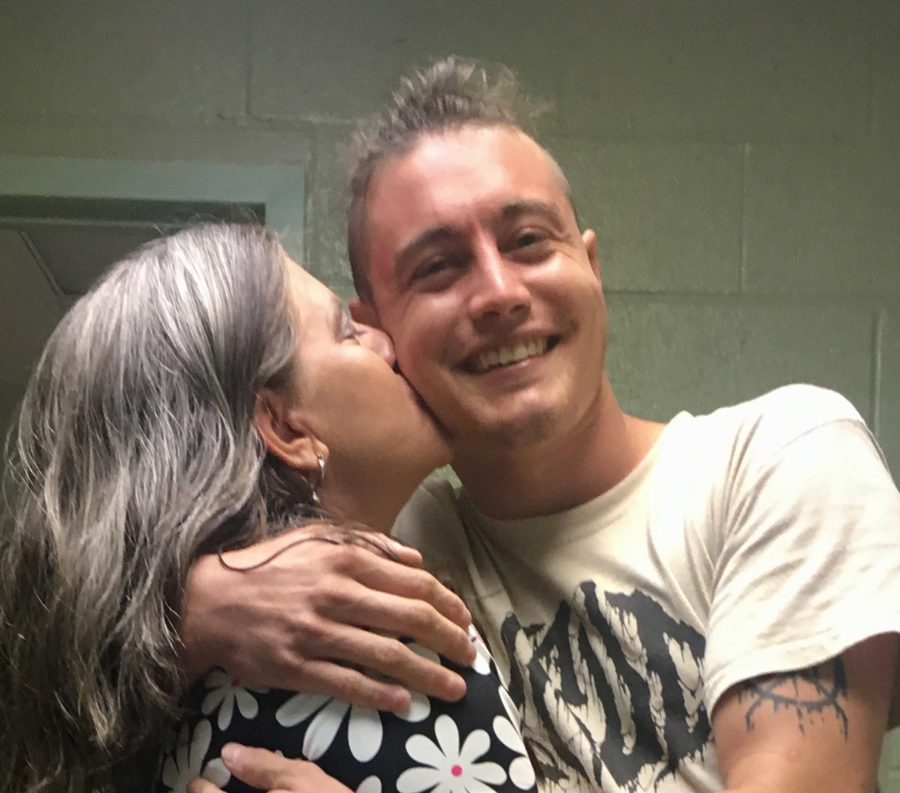
Monroe County Sheriff Rick Ramsay said the death rate from drug overdoses in the Florida Keys is not as high as other places in the country.
“But we’ve got to continue to be vigilant,” he said.
“As a lawman in the ’80s and ’90s in the Keys, people dying from drugs was unheard of. Now an overdose is just another day at the office. We use Narcan all the time,” said Ramsay.
Narcan, the brand name for naloxone, is a nasal spray that can treat a narcotic overdose.
“We’re not as bad as other parts of the nation. But do we have a problem? Yes,” he continued. “You never saw meth, almost never saw heroin. It was marijuana, cocaine and crack back then. Now it’s perceived as not too big a deal, the stuff we thought were hard drugs. Now we’re like, ‘Eh.’”
Ramsay expressed concern that users of opioids — which include fentanyl, heroin and oxycontin pills — see Narcan as a safety net and therefore feel more comfortable abusing drugs. He pointed out that Narcan is available over the counter in CVS and said that addicts often use in pairs. They make a deadly pact to use their drug of choice one at a time. If one person looks like they are overdosing, the other person will revive them with Narcan.
“It encourages people to use drugs at higher volumes,” Ramsay explained. “Last year, we had a couple in a trailer with three kids. In a garbage trailer. They had Narcan, and they had the same pact. But they were so high, one passed out while the other overdosed. The husband died.”
Maureen Dunleavy is the regional vice president of the Guidance/Care Center, which has branches in Key West, Marathon and Key Largo. She said that in the past year, nine people died from drug overdoses of opioids, including fentanyl and heroin, in the Keys. That number would have been higher if not for Narcan, she said. The Guidance/Care Center gives out Narcan for free.
“In 53 overdose cases in 2021, Narcan was used in 29 of those cases. And we had nine deaths. We are definitely making an impact with reducing fatal doses,” Dunleavy said.
Brewer has been wrestling with her grief, she said. Therapy hasn’t helped. Some days she can make it without crying. She knows other mothers in the Keys who have children who are addicted to opioids. Sometimes, they ask her for advice.
“I’m still in raw emotion,” she said. “My knee jerk reaction is, ‘God help you.’ You can only do so much. You can lead a horse to water. It’s the same with an addict. It’s up to them to accept the help.”
If you or a loved one is battling drug addiction, help is available. Call the Guidance/Care Center at 305-434-7660, option #8. The GCC has walk-in clinics in Key Largo, Marathon and Key West.


